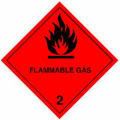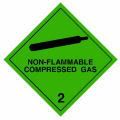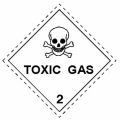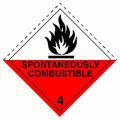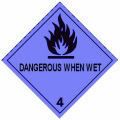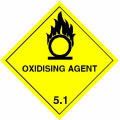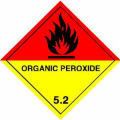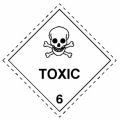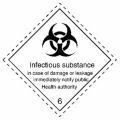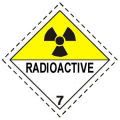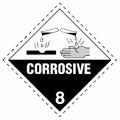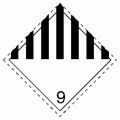Winseer:
Yes, I do wish to cover myself on tankers.
Hi Winseer,
My general advice is that a person taking ADR for the first time can save money by leaving out the tanker module simply because they’re unlikely to get a tanker driving job.
However, if you know that there’s a likelihood that you’ll need it and you’re getting DCPC hours for it, then it makes sense.
Winseer:
I take it that (1) and (7) are left out because they are considered too dangerous for the general public driver to handle? - ie work given to the miltary/government contracters?
No mate, Classes 1 & 7 are considered to be specialisms, so they’re simply not included in the first place.
Statistics backs this up, because there is so little demand for either of them.
However, Classes 1 & 7 are open for anybody to take.
Winseer:
I suppose the majority of agency work is going to be driving fuel tankers to forecourts for supermarkets, so I’d need at least that.
Whilst this is a rare possibility, my honest advice is that Core, Packages and Classes 2,3,4,5,6,8 &9 is the cheapest option with the best chance of a quick payback on your investment.
Winseer:
I’m going to have to re-approach my old driving school to find out just exactly what I get for the £800 odd they are quoting me for the full 35 hour credit as well, as it seems it’s not going to be an “all singing, all dancing” course after all. 
Core, Packs, seven UN Classes and Tanks will take 5 days in total if you’re taking 28hrs DCPC.
However, Core, Packs and seven UN Classes takes 3 days to teach (hence the 21hrs DCPC available for it) but half of the fourth day is usually taken up with the necessary exams. There are NO DCPC hours available for taking exams, so that day is ‘lost’ for DCPC purposes.
Winseer:
Does anyone get to handle the double-trouble stuff like Phenol (corrosive that’ll burn skin AND poison) or dimethyl mercury (one drop on your skin, and you’'ll go mad) type really dangerous stuff that isn’t in (1) and (7) already?
Yes, there are many commonly carried substances that have a secondary danger.
Some substances even have a third (tertiary) danger.
Some substances have more than three dangers, but these are included in UN Class 9 for that reason.
Winseer:
We all know about things like plutonium or nitroglycerine, but the standard lab reagents list has quite a few less-well-known nasty ones on it!
I used to work in a lab as my first job after leaving school, and I’m hoping some of my background there might make the taking of this course a bit easier…
I’m glad that you’ve mentioned that, cos it gives me an early chance to warn you not to look too deeply at what your instructor will tell you.
A driver is NOT reponsible for classifying dangerous goods, so I’m afraid that your knowledge of lab work won’t be of much help on a driver’s ADR course.
 Looking too deeply at what you’re told is a common reason for failing ADR exams, cos folk who do that won’t find the answer they’re looking for as one of the multi-choice options.
Looking too deeply at what you’re told is a common reason for failing ADR exams, cos folk who do that won’t find the answer they’re looking for as one of the multi-choice options. 
Please remember that an ADR course is primarily aimed at teaching drivers their responsibilities when carrying dangerous goods. Please don’t confuse that job or the responsibilities that go with it with those of the Consignor or Carrier and you’ll not go far wrong.
![]()

